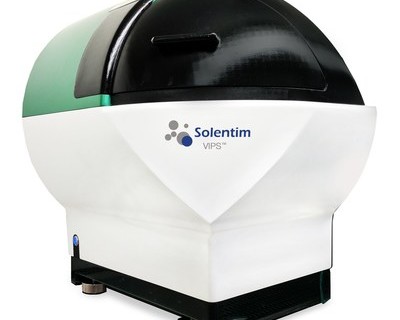
A single Cell Dispensing Unit for Cell Line Development – taking the benefits of Limiting Dilution and combining with high seeding efficiencies
Introduction
Identifying cell lines that have good manufacturing potential is critical to successful CHO cell based biomanufacturing. To accomplish this, transfected cells must be separated and cloned into monoclonal cultures. Thorough clone selection is crucial to identifying the best producers. Clones that warrant further investigation are stable, good producers that demonstrate specific attributes based on the product specifications.
One of the most popular traditional cloning techniques is limiting dilution. The technique is cost-effective and has received regulatory acceptance for several years. In limiting dilution cloning, a mixed population of cells is diluted in liquid media and is dispersed into 96-well plates or other culture vessels. The goal of this method is to isolate individual cells into single wells or vessels. In order to accomplish this, the wells are seeded at an average density of less than one cell per well. While low seeding density increases the chance of isolating single cells into single wells, it also means that there will be more empty wells. Empty wells represent a waste of personnel time, consumables and lab space. Nonetheless, no matter how low the seeding density, some wells will still contain multiple cells or doublets
While the limited dilution method is still very popular, it is time consuming and labor intensive. With advancements in cell line development and successful alternatives available, many groups are looking to replace limiting dilution with more advanced and robust technologies.
VIPS™ – Single cell dispensing unit
One example of an advanced cloning technology is the VIPS™ (Validated In-situ Plate Seeding). Solentim, a developer of instrumentation for cell line development, recently launched VIPS to provide a solution for the inefficiencies found with limiting dilution. While VIPS builds upon the wide adoption, regulatory acceptance, and established benefits of a limiting dilutions approach, it significantly increases the plate seeding efficiency by automatically seeding single cells into well microplates and thus enabling the use of fewer plates. The gentle nature of the dispensing process is also amenable to high colony outgrowth efficiencies.
VIPS was designed to automatically seed single cells into 96 and 384 well microplates as part of the process to generate clonally-derived cell lines. Using a unique and proprietary process, called SMART LD™, imaging of the well is carried out before and then immediately after a cell dispensing event and automated cell detection confirms whether a single cell was dispensed or not. This is an iterative process repeated several times over to ensure a final plate with a resultant high occupancy of single cells in wells, most of which will grow out to form colonies. The system includes features to enable the statistical qualification of the seeding process, to both validate the seeding protocol and to provide ongoing quality control when scaling up throughput.
VIPS provides a single cell seeding platform which integrates perfectly with Solentim’s Cell Metric® imager that generates evidence for the FDA of the clonal origin of cell lines and MCBs
For more information on VIPS or Cell Metric or to request a demonstration, please see below:
Product Information – http://www.solentim.com/products/
Request a demonstration – http://www.solentim.com/contact-form/